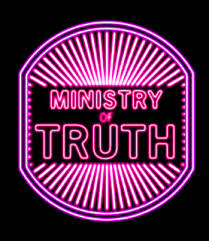The following censorship instructions, issued to the media by government authorities, have been leaked and distributed online. The name of the issuing body has been omitted to protect the source.
Minitrue: All websites find and delete the article “Xinhua: What Kind of People are the Internet Writers Xi Jinping Questioned?” and related content. (October 16, 2014)
全网查删《新华社客户端:习近平问起的网络作家是何许人?》一文及相关内容。[Chinese]
Yesterday, Xi Jinping called on the nation’s artists and writers to work towards promoting Party ideology and reinforcing his concept of the “Chinese Dream“—yet another political move tempting comparison between the General Secretary and his predecessor Mao Zedong. Both in content and language, Xi’s speech was evocative of the talks Mao delivered 70 years ago in Yan’an, which forged the CCP’s view of the artistic endeavor.
While addressing the crowd, Xi asked two young bloggers to stand and be recognized for their “positive energy”; the above directive prompted Chinese news websites to delete a Xinhua media profile of the two praised Internet writers. Bloomberg Businessweek reports:
In a revealing moment, Xi asked Zhou Xiaoping, a well-known Internet blogger in his early 30s, and a second blogger, Hua Qianfang, also in his 30s, to stand up and be recognized by the largely older attendees. Xi praised Zhou’s and Hua’s essays—known for their patriotism and anti-Western fulminations—for having “positive energy.” Zhou has recently gained notoriety for a particularly virulent essay entitled “Nine Knockout Blows in America’s Cold War Against China.”
In that essay, Zhou savages the tendency of young Chinese to worship the West and accuses the U.S. of using the Internet and its cultural exports, such as Hollywood movies, to try to undermine China’s social and political system. Zhou also attacks America as being viciously anti-China and defaming Chinese, he says, to a degree seen previously only in Hitler’s vilification of the Jews. [Source]
While Xi showered Zhou and Hua with praise for their patriotic web conduct, an ongoing central government crackdown on social media has for the past year been working to silence “Big V” microbloggers known to post more critical commentary.
 Since directives are sometimes communicated orally to journalists and editors, who then leak them online, the wording published here may not be exact. The date given may indicate when the directive was leaked, rather than when it was issued. CDT does its utmost to verify dates and wording, but also takes precautions to protect the source.
Since directives are sometimes communicated orally to journalists and editors, who then leak them online, the wording published here may not be exact. The date given may indicate when the directive was leaked, rather than when it was issued. CDT does its utmost to verify dates and wording, but also takes precautions to protect the source.








